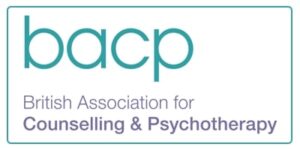Finding Yourself First: A Key to Building Solid Relationships - Shermeen Gul

A lot of things get sacrificed in maintaining a solid relationship – time, money, interest, career, energy, emotions, and etcetera – but losing one’s self is very costly.
As you build the foundation and walls of the relationship by using your identity, your sense of self, your ideas, your emotions, your spirituality, your well-being as the bricks, you begin to realize that the ‘you’ in you is slowly fading away. You have turned into another person.
You begin to ask, what went wrong? And begin to channel your frustrations towards another party. Soon, begins a vicious cycle.

Shermeen Gul who offers integrative multilingual psychotherapeutic counselling, highlights about the victim mentality.
She says many came to her with a victim mindset. In most cases, they already set in their mind that the relationship will never work and the only way out is to get out from that position. Some patients seek her just for the sake of affirmation – a validation that their decision to get out from the relationship is the right one – instead of looking at the many alternatives as solutions to their problems.
It is easy to put on a victim mentality when a relationship did not work. However, more often than not the root cause of many problems in the making of a couple is the individual that made up the duo itself. More so whether they realise it, it is affecting their other relationships too.

Finding yourself comes first, she says. Offering a mixture of theoretical approaches such as Person-centred, Psychodynamic, Cognitive Behaviour Therapy (CBT) and Transactional Analysis (TA), Shermeen often emphasized building the patient's sense of self instead of solely focusing on fixing the relationship.
She believes that the more they build themselves as a person, the better their relationship will be whether it is parent-child, husband-wife or employer-employee relationship. You cannot give to others what you cannot give to yourself.
“Essentially, you have to find yourself”, said Shermeen. In her opinion, a lot of people enter a relationship thinking about the other person – how the other should behave, think and respond to the point that they forget the other part of the equation, which is themselves.

Shermeen noted that it is normal for people seeking counselling within an Islamic space to feel like they’re holding an additional amount of shame, fearing they would be told off or be judged by those who find out they’re engaged in counselling.
Being a professional registered British Association for Counselling and Psychotherapy (BACP) and Muslim Counsellor and Psychotherapist Network (MCAPN), she assures the safe space and the privacy, conducting sessions via the internet or phone.
Years of experience has allowed her to work with people of various ages and issues be it, adults and young adults, from those dealing with sexual violence and domestic abuses survivors to issues related to school, social media and peer relationships.
To explore more about Shermeen and her service, head over to her profile here. Otherwise, you can explore other counsellors at ImamConnect who also provide counselling sessions in private and remotely.
